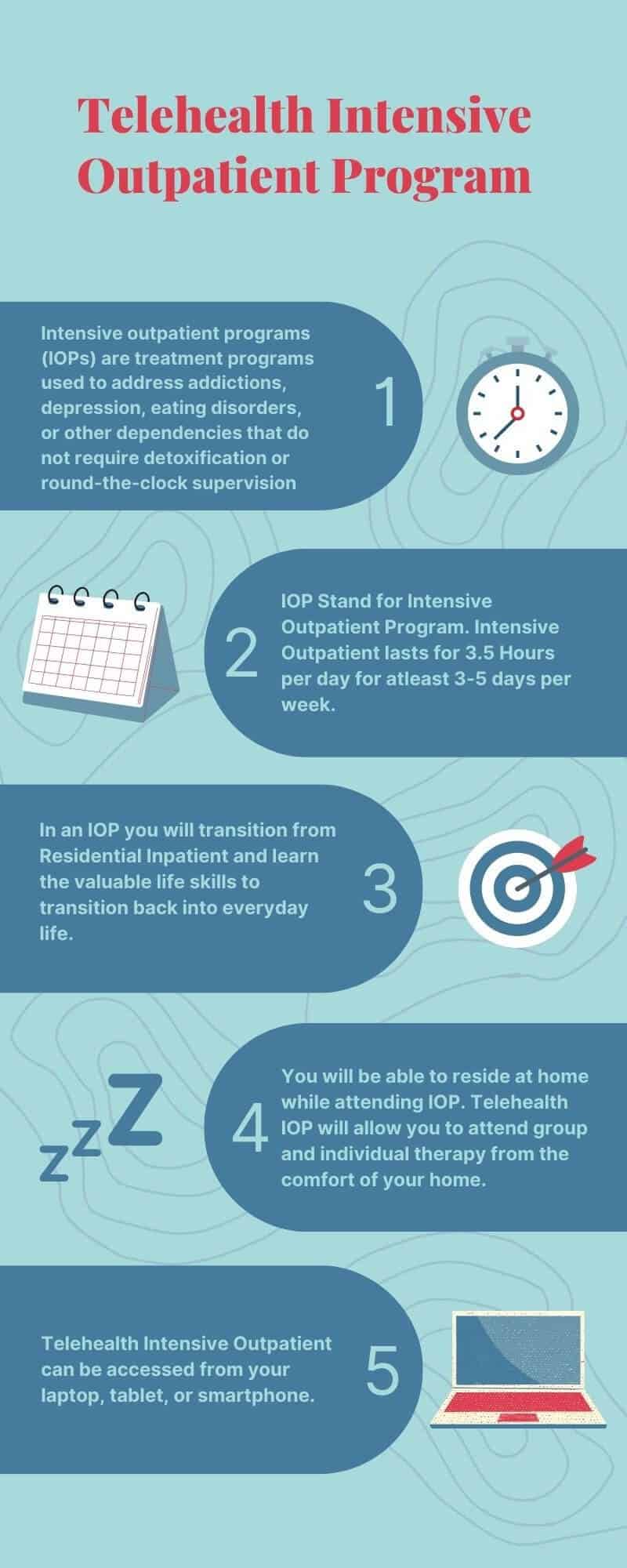Why an Intensive Outpatient Program (IOP) is Essential for Long-term Healing.
Why an Intensive Outpatient Program (IOP) is Essential for Long-term Healing.
Blog Article
The Impact of Holistic Therapies on Mind-Body Recovery in an Extensive Outpatient Program
In the realm of extensive outpatient programs, the incorporation of all natural treatments has triggered significant rate of interest and debate among specialists in the field of psychological health and health. The possible synergy between standard therapeutic techniques and all natural techniques in fostering alternative well-being continues to be a subject ripe for expedition and analysis.
Integrating Holistic Therapies in IOP
Integrating all natural treatments right into Intensive Outpatient Programs (IOP) can improve the general health and treatment outcomes of people looking for mental health support. Alternative treatments concentrate on treating the whole person, resolving not only the symptoms yet also the underlying sources of psychological wellness concerns. By incorporating practices such as yoga, meditation, art therapy, and acupuncture into IOP settings, patients can experience an extra detailed strategy to their treatment.

Benefits of Yoga Exercise and Reflection
By infusing IOP settings with all natural therapies like yoga and reflection, individuals can access a range of advantages that contribute to their mental and psychological well-being - Intensive Outpatient Program (IOP). Furthermore, yoga boosts self-awareness and promotes a sense of internal peace, which can be specifically helpful for individuals undergoing extensive outpatient treatment.
By incorporating meditation into their regular, people in an IOP can learn to handle competing thoughts, improve concentration, and cultivate an extra favorable expectation on life. Integrating yoga and meditation into IOP settings can considerably improve the psychological and emotional well-being of individuals looking for alternative recovery.
Acupuncture for Mind-Body Recovery
Acupuncture, a typical Chinese medicine practice entailing the insertion of thin needles into particular points on the body, provides an unique technique to mind-body healing by targeting power flow and promoting alternative wellness. This ancient method is based on the concept of Qi, the body's important energy, flowing along meridians or pathways. By promoting certain acupoints, acupuncturists aim to bring back the balance of Qi, which is believed to be necessary for general health and wellness and wellness.

In addition, why not try this out acupuncture is significantly being incorporated right into Western medicine methods to complement conventional therapies for numerous psychological wellness conditions, providing an all natural strategy that thinks about the interconnectedness of the body and mind in promoting recovery and wellness.
Mindfulness Techniques in Treatment
Increasing on the world of alternative therapies, mindfulness strategies play a crucial function in therapy by cultivating a much deeper connection in between the body and mind for overall health. Mindfulness, rooted in old contemplative practices, entails focusing on the here and now minute non-judgmentally - Intensive Outpatient Program (IOP). In the context of an intensive outpatient program, including mindfulness methods can help people establish self-awareness, regulate feelings, and decrease stress and anxiety degrees. Through mindfulness reflection, individuals can grow a heightened feeling of understanding of their ideas, feelings, and physical feelings, advertising a higher understanding of the interconnectedness between physical and psychological well-being.

By encouraging individuals to observe their thoughts without accessory or judgment, mindfulness promotes a feeling of acceptance and concern towards oneself. Eventually, integrating mindfulness strategies into therapy strategies can empower people to proactively take part in their recovery journey and promote all natural wellness.
Assessing Holistic Interventions' Efficacy

By incorporating measurable information with qualitative responses, scientists browse this site can obtain a more holistic understanding of the effectiveness of these interventions in promoting mind-body healing within an intensive outpatient program. Such assessments are vital for notifying evidence-based methods and maximizing all natural therapy techniques for people seeking extensive wellness.
Conclusion
Finally, the integration of holistic treatments such as yoga exercise, meditation, acupuncture, and mindfulness techniques in an intensive outpatient program can have a significant effect on mind-body recovery. These treatments provide a more comprehensive approach to therapy by resolving the physical, psychological, and spiritual elements of an individual's health. Reviewing the efficiency of these alternative interventions is essential in understanding their potential advantages in improving the overall recovery procedure for individuals in an outpatient setup.
Report this page